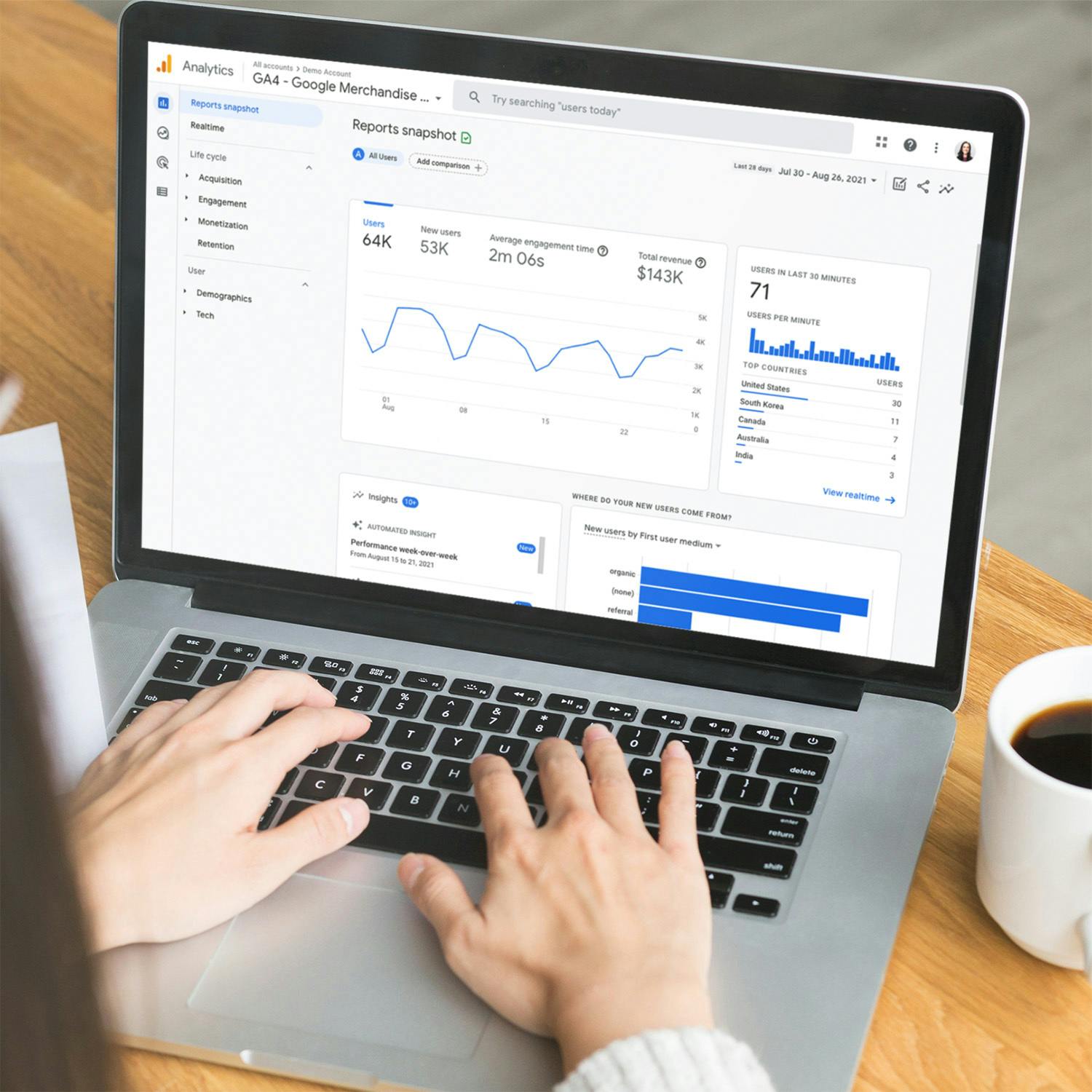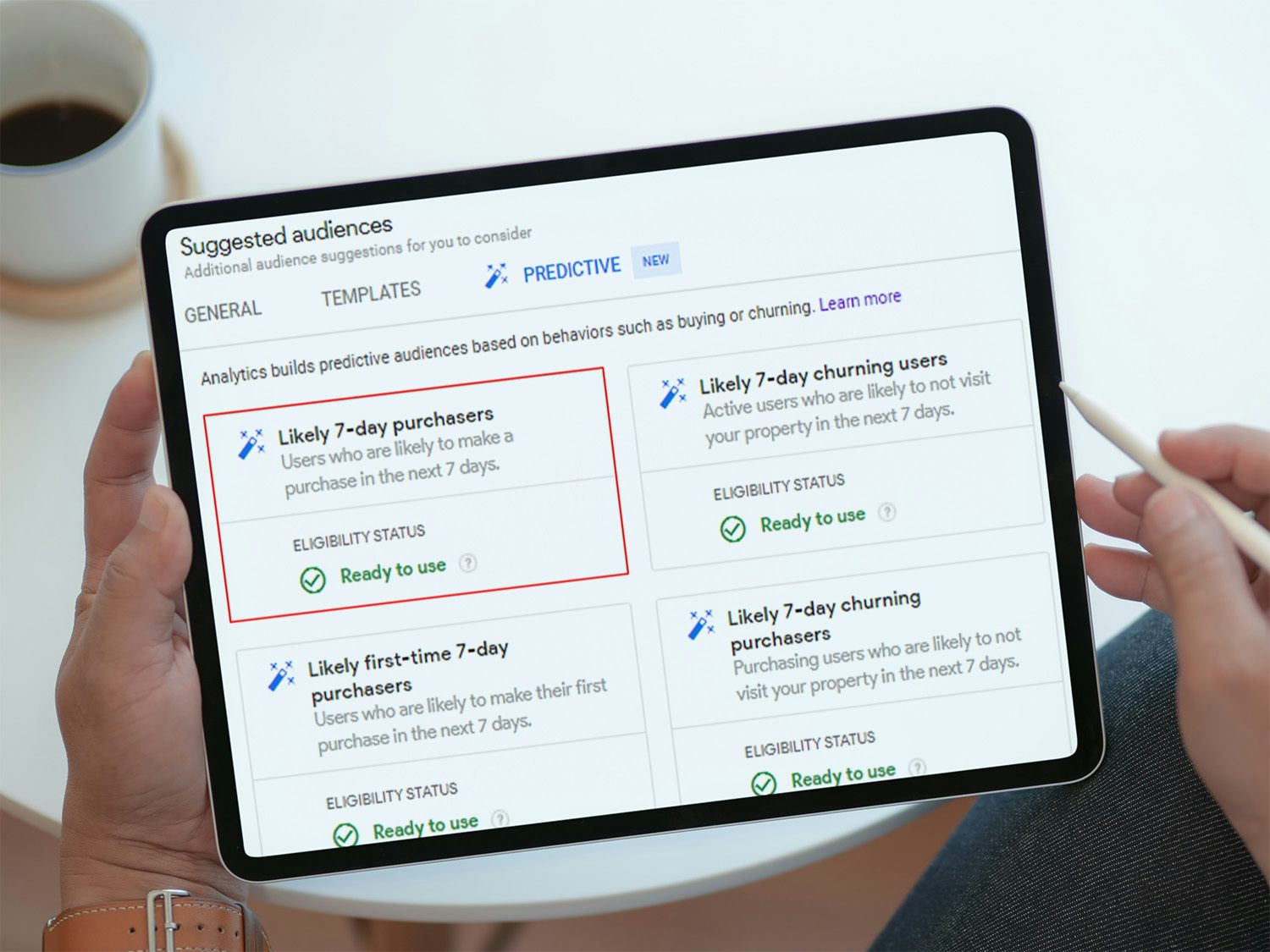
Google Analytics 4 (GA4) is the latest version of Google's web analytics platform. GA4 was released in October 2020 and is an updated version of the previously known Universal Analytics (UA), which is due to be phased out entirely in July 2023.
GA4 is designed to help businesses gain a better understanding of their customers across different devices and platforms. It does this by leveraging machine learning technology to provide businesses with more accurate and relevant insights into their customers' behaviour.
Our SEO Specialist Russell Patterson says: "Google Analytics 4 (GA4) represents the dawn of a new era in data-driven decision-making. With its enhanced cross-platform tracking, event-based model, and machine learning insights, GA4 empowers businesses to unlock deeper customer understanding, optimise marketing strategies, and drive growth."
One of the main differences between GA4 and Universal Analytics is the way that data is collected and processed. With GA4, data is collected using an event-based model. This means that every interaction a user has with your website or app is recorded as an event. These events can then be used to build custom audiences, create more accurate user segments, and even predict user behaviour.
Another key feature of GA4 is its focus on privacy and data protection. GA4 provides businesses with more control over their data and allows them to easily comply with GDPR and other data privacy regulations.
Better Cross-Device Tracking: GA4 provides a more accurate view of user behavior across different devices and platforms. This allows businesses to better understand how users interact with their website or app, regardless of the device they are using.
Improved User Segmentation: With GA4's event-based data collection model, businesses can create more accurate user segments based on specific interactions and behaviours. This can help businesses create more targeted marketing campaigns and improve overall user engagement.
Predictive Analytics: GA4 uses machine learning technology to provide businesses with predictive analytics capabilities. This means that businesses can use their data to predict user behaviour and take proactive steps to improve engagement and retention.
Enhanced Data Privacy: GA4 provides businesses with more control over their data and allows them to easily comply with data privacy regulations.
Some of the key differences between UA and GA4 are:
In conclusion, Google Analytics 4 (GA4) is an exciting upgrade to the previous Universal Analytics version. With GA4, website owners and marketers can gain deeper insights into customer behavior and engagement across various channels, including mobile apps and web platforms.
The benefits of GA4 are numerous, including the ability to track multiple platforms in one place, more advanced data modeling, and machine learning capabilities that help to surface insights and opportunities for optimization.
While the transition to GA4 may take some time and effort, it's a worthwhile and necessary investment for businesses that rely on data-driven decision-making. By taking advantage of the powerful tools and features offered by GA4, businesses can gain a competitive edge in their industries and drive growth through more informed and effective marketing strategies.




